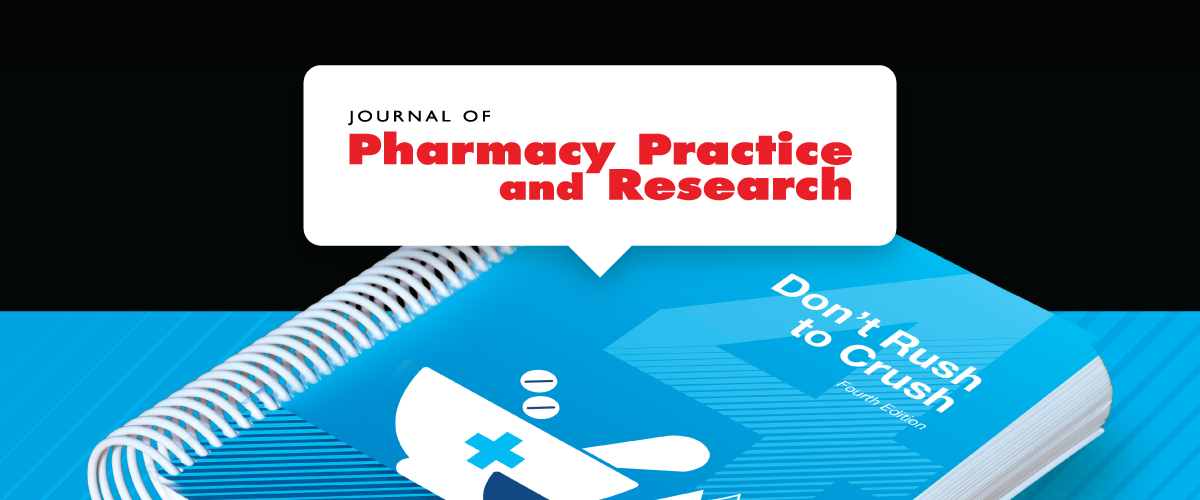New liquid testing research boosts Don't Rush to Crush message
Australian researchers have tested the thickness of oral liquid medicines against international standards for the first time, aiding the safe administration of medicines for Australians with dysphagia – difficulty swallowing foods or liquids – through the leading Don’t Rush to Crush resource.
In the study, published in the latest issue of the Journal of Pharmacy Practice and Research (JPPR) – available free to SHPA members – more than 120 oral liquid medicines were tested and classified using the International Dysphagia Diet Standardisation Initiative (IDDSI) framework to determine if they are a safe option for people with dysphagia.
Lead author Associate Professor Kathryn Steadman says the research is key to medication safety as liquid medicines must be of suitable thickness to reduce the risk of aspiration.
‘Arising from the mouth, throat or oesophagus, dysphagia ranges from mild difficulty, to a complete inability to swallow food, drink, medicine and even saliva. For people with dysphagia, the thickness of liquids, as well as the texture of food, is an important factor to consider for swallowing safety to reduce the risk of choking.
‘Many oral liquid medicines are thin fluids and while they may be suitable for a healthy person, our research confirmed they could cause a choking risk and so are often not a safe alternative to whole tablets and capsules for most people with dysphagia. However small volumes of most oral liquid medicines and dispersed tablets can be mixed with a medication lubricant to facilitate safe swallowing for people with dysphagia.
‘Wherever possible, people with dysphagia should have a swallowing assessment by a speech pathologist before they are given oral medicines.’
The study directly informed the recommendations in the 4th edition of Don’t Rush to Crush, Australia’s essential guide to safely administering oral medicines to people with enteral feeding tubes or swallowing difficulties, produced by the Society of Hospital Pharmacists of Australia (SHPA).
SHPA Chief Executive Kristin Michaels says swallowing difficulties are particular prevalent in residential aged care.
‘As approximately 60% of older Australians living in aged care have chewing and swallowing problems, new understanding of the relationship between medicines and dysphagia is very important, given 91% of aged care residents take at least five regular medicines, and 65% take more than 10, every day.
‘Don’t Rush to Crush provides a comprehensive reference of over 590 oral medicines currently available in Australia, including a range of options to help ensure the safe and effective use of medicines for people with dysphagia.
‘It is an indispensable frontline resource to manage risk and ensure quality care in all residential aged care settings for people with enteral feeding tubes or swallowing difficulties.’
The 4th edition of Don’t Rush to Crush is now available via the SHPA Bookshop and on the eMIMS, MIMS Online and AusDI platforms.


